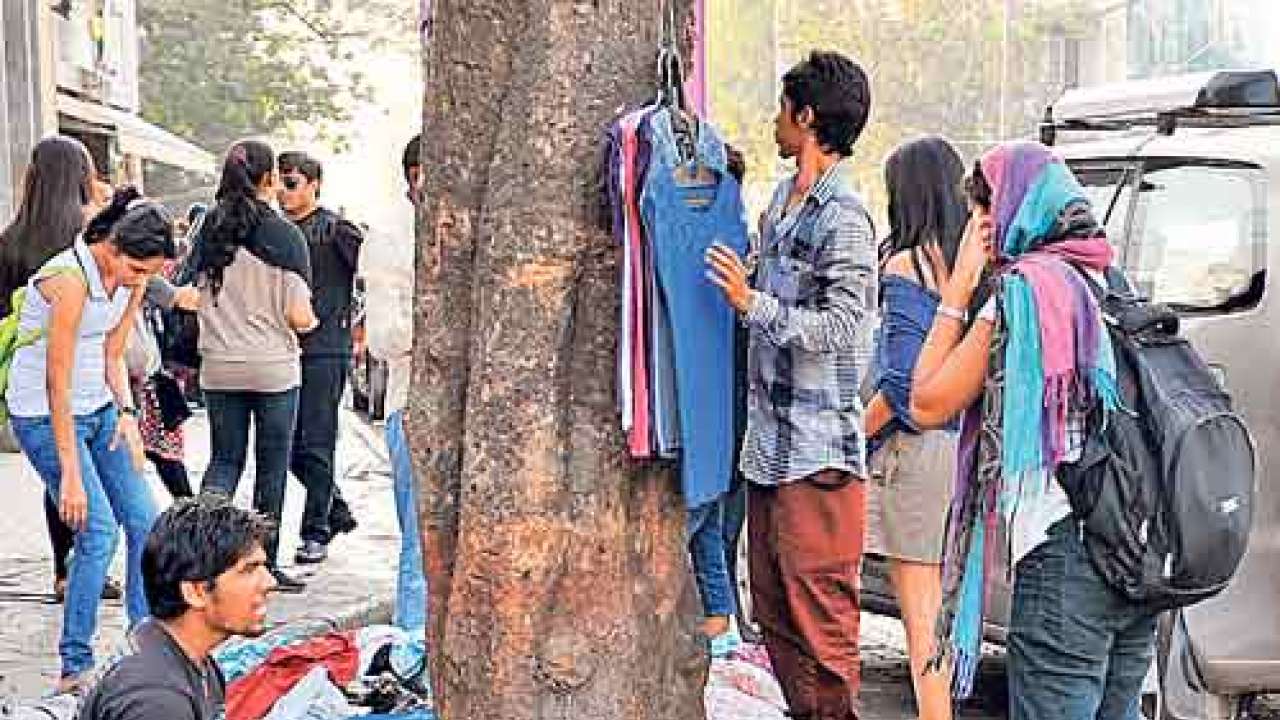
Indian cities have parallel cities run by the informal sectors. May it be rag picking and solid waste management, waste recycling through resale and transformation processes, self-organised housing like squatter settlements, or even vending on the streets for food, products or services. It supplements what, where and when the formal systems fail to provide. It is accessible, affordable and available to the other half of Indian towns and cities. More than half of Mumbai lives in squatter settlement. Nearly 20% of solid waste in urban areas is managed by the informal sector and over a million street vendors offer their services in urban India.
At a very conservative estimate, 2.5 lakh vendors serve Mumbai, over two lakh in Delhi and over a lakh in Ahmedabad. This means that for every 50 persons, there is one vendor. Street vendors constitute an important segment of the urban population. They earn their livelihood through their own meagre financial resources and sweat equity. Realising this, Government of India has introduced in Lok Sabha, the bill no. 104 of 2012, called the Street Vendors (protection of livelihood and regulation of street vending) bill, 2012.
The eleven chapter bill has provisions for registration of street vendors and issue of certificate of registration, rights and obligations of street vendors, relocation of street vendors, their eviction and procedure for confiscation of goods, dispute redressal mechanism clauses, plan for street vending, town vending committee, duties of local authority and prevention of harassment of street vendors as well as penal provisions.
The standpoints and basis as acknowledged and argued for the bill are that “street vending provides a source of self-employment, and thus acts as a measure of urban poverty alleviation without major Government intervention. Street vending also acts as an instrument to provide affordable as well as convenient services to a majority of urban population and has a prominent place in the urban supply chain. It is also an integral part of the economic growth process within urban areas. Given the pace of urbanisation and the opportunities presented through the development of urban areas, the growth of street vendors is likely to have an upward trend. It is vital that these vendors are enabled to pursue their livelihoods in a congenial and harassment-free atmosphere.
Considering the significant contribution made by street vendors to the urban society as a whole, more specifically to the comparatively poorer sections, and to enable them to earn a livelihood through creation of good working conditions, without causing obstruction to the public, the Government of India brought out revised National Policy on Urban Street Vendors, 2009 which aims at securing right of the citizens to have adequate means of livelihood as enshrined in articles of the Constitution and fostering a congenial environment for the urban street vendors to carry out their activities, without harassment from any quarter. It also aims at providing a mechanism for regulation of street vending activities to avoid congestion on sidewalks and to ensure free flow of traffic on roads by a legislative framework to enable street vendors to pursue an honest living without harassment”.
The proposed strategy is to make provision for compulsory registration of every person intending to carry out street vending activities; address issue of a certificate of vending and identity cards to street vendors; acknowledge certain rights of street vendors; define certain duties of the street vendors; institutionalizing a system through constitution of Town Vending Committee in each local authority with minimum 40% representation of street vendors, out of which one-third shall be women vendors; making of a plan for street vending once in every five years; framing of a scheme relating to street vending by the appropriate government; creating fora for redressal of grievances and resolution of disputes of street vendors; evolving promotional measures for making available credit, insurance and other welfare schemes of social security for the street vendors; as well as ensuring that street vendors are not prevented by any person or police or any other authority from exercising their right to vend when carrying on street vending in accordance with the terms and conditions of certificate of vending.
The Bill tabled on August 31, 2012, seeks to achieve these objectives and hopefully is close to becoming an Act very soon. This would help formalise the informal and retain the vitality that characterises Indian cities...